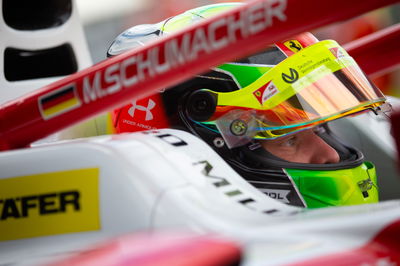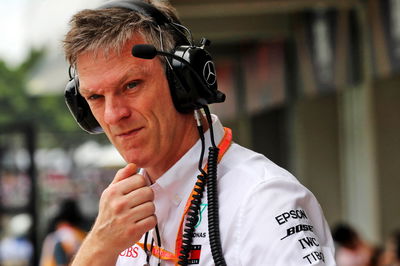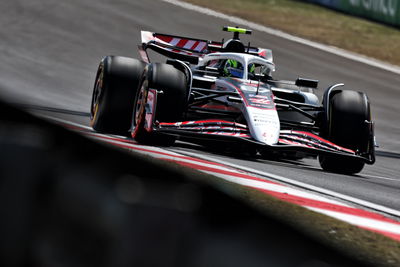The make-or-break 2020 facing Mick Schumacher
As early movements in the Formula 1 driver market for 2021 begin to give us an idea of what the grid may look like next year, those currently on the outside will be pondering what kind of season they need to seize any potential opportunity.
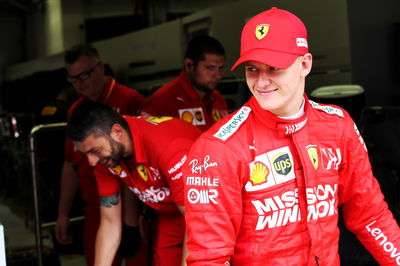
As early movements in the Formula 1 driver market for 2021 begin to give us an idea of what the grid may look like next year, those currently on the outside will be pondering what kind of season they need to seize any potential opportunity.
With none of the top four in last year’s Formula 2 standings returning to the championship in 2020, there is a chance for incoming rookies such as Robert Shwartzman, Marcus Armstrong and ex-Red Bull junior Dan Ticktum to impress. More experienced heads such as Jack Aitken, Guanyu Zhou and Callum Ilott will also start the year expected to contend for the title.
But the weight of expectation will fall no greater than on the shoulders of Mick Schumacher, who looks set to face a make-or-break season for his Formula 1 hopes.
Schumacher’s debut F2 season may have included one visit to the top step of the podium in Hungary, but it was hardly a campaign to scream about. He finished no higher than eighth in any Feature Race, and spent much of the year in the thick of F2’s midfield, lacking the consistency to worry the front-runners. He finished the season 12th in the final standings with 53 points, just 10 of which were scored in the Saturday Feature Races.
Nevertheless, Schumacher’s name was linked to an F1 drive at Alfa Romeo for 2020 after a shaky start to Antonio Giovinazzi’s season. The Italian managed to salvage his future with a strong second half of the year, but even so, to have promoted Schumacher so soon would have been a huge gamble for Ferrari with its leading young talent.
The romanticism around seeing a Schumacher back in F1 is significant. It would be a good news story the sport would love to try and rekindle the spark for fans who watched Michael Schumacher at the peak of his powers, and perhaps have since fallen out of love with the sport. Such thinking led to Schumacher Jr. getting behind the wheel of the Ferrari F2004 that his father drove to his seventh and final world title for a show run at Hockenheim last year, acting as one of the big draws to fans for the ailing grand prix.
Schumacher has a valid FIA Super License (despite claims to the contrary that he would lose it if he did not make his F1 debut in 2020) and has been the prominent member of the Ferrari Driver Academy for a couple of years now. But he now must prove that he is the man the decision-makers Maranello should put their faith in for the future.
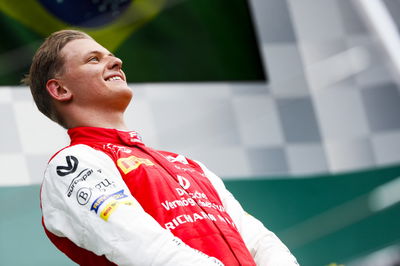
2020 will leave Schumacher no place to hide. The adjustment from F3 to F2 can be a difficult one, but entering his second season, he will have enough experience of racing with pit stops and varying tyre compounds to not slip up and make rookie mistakes. The fact he will be racing with Shwartzman, a newcomer to F2, means Schumacher should be the team leader at Prema.
There is added pressure for Schumacher in terms of Ferrari’s junior pecking order. No fewer than five FDA members – Schumacher, Shwartzman, Armstrong, Ilott and Giuliano Alesi – will be racing in F2 next year, all hoping to establish themselves as the leading candidate to make the step up to F1. Given there are two vacant seats at Alfa Romeo for 2021, currently occupied by the unconvincing Giovinazzi and 40-year-old Kimi Raikkonen, whoever of the quintet finishes highest in F2 this year would fancy their chances of making the step up.
Partnering Schumacher at Prema, F3 champion Shwartzman will have exactly the same opportunity as his teammate to impress. Armstrong and Ilott also hold plum seats with ART Grand Prix and UNI-Virtuosi respectively. All four are viable title contenders, but for Schumacher and Ilott in particular, anything less than a title challenge would be a huge disappointment given their added experience.
It is a necessity for Schumacher if he is to continue with the momentum that has been building since the mid-part of 2018, when his scintillating run of form in European F3 carried him to that year’s title ahead of Ticktum and Shwartzman. If he is comfortably outclassed by his FDA peers – particularly the rookies – then it would make it hard for Ferrari to give a compelling argument to place Schumacher into any future F1 seat ahead of them. In the case of Shwartzman, an F2 title win would give him a near-identical trajectory to Charles Leclerc.
But Schumacher’s added experience – two years in F2 over what would be one for Shwartzman or Armstrong – plus his previous F1 running, completing a day apiece for Ferrari and Alfa Romeo would give Ferrari enough of a case so long as he can establish himself as a front-runner this year. Any kind of repeat of this year would be a big blow to his future F1 hopes.
Having already extended Leclerc’s contract to the end of the 2024 season, Ferrari will surely be thinking about its future driver options and eventual succession plan to Sebastian Vettel, who will turn 33 in July and is out of contract at the end of this year. A ready-made replacement from the academy is lacking if Ferrari were to replace Vettel for 2021, but beyond that – say, 2022 or 2023 – then it would unquestionably like to be in the position to field an all-FDA alumni line-up.
Drivers excel at different parts of their career. Alexander Albon had a so-so debut season in F2 before becoming a regular race winner in his second year, and found himself in a Red Bull F1 seat less than 12 months later. Antonio Giovinazzi took three years to become a title contender in European F3, but still did enough to catch Ferrari’s eye. One bad season will not define a young driver.
Schumacher’s hope – likely to be shared by senior figures at both Ferrari and F1 itself – is that the best is still to come, and that 2020 will be the year he proves his links to a future F1 drive are based more on his driving than his surname.
